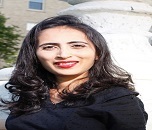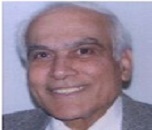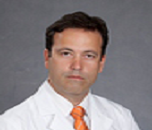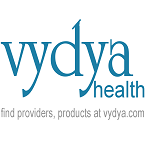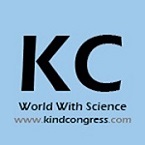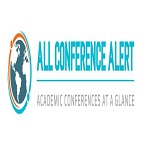Track 01: Pediatrics
Pediatrics is a field of medicine that is concerned with the health of infants, children and adolescents which includes their growth and development, their opportunity to achieve full potential as adults. The investigation of pediatrics is diminishing the death rates of the infants and the adolescents and besides to control the spreading of sicknesses which are pediatric irresistible maladies which will propel the solid life frame contaminations free life to draw out the issues of youngsters and children. This can be seen that the change of pediatrics is done by knowing the diverse pediatric innate issue fundamental subjects which generally required for pediatrics. The basic treatment which deals in pediatrics is advancing the headway of pediatric prosperity in adolescents and infants.
Europe: International Society for Social Pediatrics & Child Health, Baltic Association of Paediatric Surgeons Tallinn European Society For Developmental Perinatal & Paediatric Pharmacology, Society of Chiropodists and Podiatrists London, European Society for Paediatric Neurosurgery, Italian Society of Pediatric Rome, Finnish Paediatric Association, Portuguese Society of Pediatrics, Romanian Society of Social Pediatrics, Swedish Pediatric Society, Norwegian Pediatric Association, World Federation of Associations of Pediatric Surgeons, Italian Society of Pediatrics
Track 02: Breastfeeding
Breastfeeding is one among the foundations of Pediatric health, development and survival. It is especially important where diarrhea, pneumonia and under nutrition are common causes of mortality in children under 5 years of age. Breastfeeding also helps to reduce overweight and obesity and protects maternal health in all parts of the world. Breastfeeding should be initiated within the first hour after birth and that infants should exclusively breastfeed for the first 6 months complementary foods should then be introduced, with continued breastfeeding until 24 months of age or older.
USA: American Society for Nutrition, American Pediatric Society, National Association of Neonatal Nurses, International Neonatology Association, Academic Pediatric Association, International Society for Neonatal Screening, Children’s Leukemic Research Association New York, American Academy of Paediatrics Washington, Albanian Association of Perinatology, Argentine Society of Neonatology, California Association of Neonatologists, Florida Society of Neonatologists, Ibero-American Society of Neonatology
Track 03: Clinical Pediatrics
Clinical Pediatrics is a medical journal that follow to publish and to available information on a change of child-center care topics along with those of a clinical scientific, behavioral, educational, or ethical nature. Clinical Pediatrics allergy is also one of the most important and widely studied areas in novel research of this field. Initial detection of cancer in children also is taking earlier attention in Clinical Pediatrics cancer.
Asia Pacific: Asian Pacific Pediatric Association, The Malaysian Pediatric Association Kuala Lumpur, Asian and Oceania Society for Paediatric Radiology, Asian Association of Pediatric Surgeons, The Pacific Association of Pediatric Surgeons, Asian Australasian Society of Neurological Surgeons (AASNS), Asian Surgical Association, Asia Pacific Spine Society (APSS), Japanese Society of Pediatric Cardiology and Cardiac Surgery, Asian Society for Pediatric Research, Philippine Pediatric Society, Asia Pacific Strabismus and Pediatric Ophthalmology Society
Track 04: Neonatology and Perinatology
Neonatology deals with prevalently sick or untimely new-born's. Kids with a birth imperfection or is conceived rashly, are treated in the NICUs and helped by a neonatologist amid conveyance and the consideration of the new-born child. A neonatologist tends to unpredictable and high-hazard environment that a general pediatrician may not be very much prepared to deal with it.
Perinatology is a subspecialty of obstetrics concerned with the care of the fetus and complicated, high-risk pregnancies. Perinatology is also known as maternal-fetal medicine. Since the perinatal period, depending on the definition, starts at the 20th to 28th week of gestation and ends 1 to 4 weeks after birth, perinatology logically could be an obstetrical and Pediatric subspecialty but, in practice, it is part of obstetrics. The comparable area of Pediatrics is neonatology. A high-risk baby might be cared for by Perinatologists before birth and by a neonatologist after birth.
USA: American Society for Nutrition, American Pediatric Society, National Association of Neonatal Nurses, International Neonatology Association, Academic Pediatric Association, International Society for Neonatal Screening, Children’s Leukemic Research Association New York, American Academy of Paediatrics Washington, Albanian Association of Perinatology, Argentine Society of Neonatology, California Association of Neonatologists, Florida Society of Neonatologists, Ibero-American Society of Neonatology
Track 05: Pediatric Cardiology
Pediatric Cardiology represents heart diseases in children. It is comprised of congenital and acquired heart diseases. The diagnosis involves effective medical and surgical therapies. Cardiac malformations are one of the major new born birth defects which affect the infant mortality rate. This subtopic is a combined study of surgery such as thoracic surgery and/or vascular surgery and called cardiovascular/cardiothoracic/cardiovascular thoracic surgery.
Europe: International Society for Social Pediatrics & Child Health, Baltic Association of Paediatric Surgeons Tallinn European Society For Developmental Perinatal & Paediatric Pharmacology, Society of Chiropodists and Podiatrists London, European Society for Paediatric Neurosurgery, Italian Society of Pediatric Rome, Finnish Paediatric Association, Portuguese Society of Pediatrics, Romanian Society of Social Pediatrics, Swedish Pediatric Society, Norwegian Pediatric Association, World Federation of Associations of Pediatric Surgeons, Italian Society of Pediatrics
Track 06: Pediatric Allergy and Infections
Pediatric allergy is a crucial subject to be learned in order to promote knowledge and enhance the treatment of respiration, allergic, and immunologic diseases in youngsters. According to the epidemiologic investigation the common chronic illnesses of children is asthma and allergies as well as many rare diseases and uncommon diseases. Swollen or enlarged adenoids and Tonsils are common in children. The human metapneumo virus is common causes in younger children and infants. The most common allergic reactions occur in kids are atopic dermatitis (eczema), itchiness, runny nose, an asthma attack and sinusitis, Allergy and Asthma.
Children with recurrent cough, wheezing, chest tightness or shortness of breath may have one or more forms of asthma. Left untreated, asthmatic children often have less stamina than other children, or avoid physical activities to prevent coughing or wheezing. Sometimes they will complain that their chest hurts or that they cannot catch their breath. Colds may go straight to their chest. Or, they may cough when sick, particularly at night. Asthma has multiple causes, and it is not uncommon for two or more different causes to be present in one child. Pediatric Asthma is more than wheezing. Coughing, recurrent bronchitis and shortness of breath, especially when exercising, are also ways that asthma appears.
Asia Pacific: Asian Pacific Pediatric Association, The Malaysian Pediatric Association Kuala Lumpur, Asian and Oceania Society for Paediatric Radiology, Asian Association of Pediatric Surgeons, The Pacific Association of Pediatric Surgeons, Asian Australasian Society of Neurological Surgeons (AASNS), Asian Surgical Association, Asia Pacific Spine Society (APSS), Japanese Society of Pediatric Cardiology and Cardiac Surgery, Asian Society for Pediatric Research, Philippine Pediatric Society, Asia Pacific Strabismus and Pediatric Ophthalmology Society
Track 07: COVID-19 in Children
Coronavirus disease 2019 (COVID-19) is an illness caused by the severe acute respiratory syndrome coronavirus 2 (SARS-CoV-2). The incubation period of SARS-CoV-2 appears to be about the same for children as in adults, at 2-14 days with an average of 6 days.
Children infected with SARS-CoV-2 may have many of these non-specific symptoms, only have a few (such as only upper respiratory symptoms or only gastrointestinal symptoms), or maybe asymptomatic. The most common symptoms in children are cough and/or fever. A recent systematic review estimated that 16% of children with SARS-CoV-2 infection are asymptomatic, but evidence suggests that as many as half of pediatric infections may be asymptomatic. The signs and symptoms of COVID-19 in children are similar to those of other infections and noninfectious processes, including influenza, streptococcal pharyngitis, and allergic rhinitis.
As of October 22, 2020, remdesivir, an antiviral agent, was the only drug approved for the treatment of COVID-19. It was indicated for the treatment of COVID-19 disease in hospitalized adults and children aged 12 years and older who weigh at least 40 kg.
USA: American Society for Nutrition, American Pediatric Society, National Association of Neonatal Nurses, International Neonatology Association, Academic Pediatric Association, International Society for Neonatal Screening, Children’s Leukemic Research Association New York, American Academy of Paediatrics Washington, Albanian Association of Perinatology, Argentine Society of Neonatology, California Association of Neonatologists, Florida Society of Neonatologists, Ibero-American Society of Neonatology
Track 08: Pediatric Surgery
Pediatric Surgery is a subspecialty of surgery including the surgery of embryos, babies, kids, teenagers, and youthful grown-ups. Pediatric surgery emerged amidst the twentieth century as the surgical care of birth imperfections required novel procedures and techniques and turned out to be all the more normally based at youngsters' healing facilities. In these sort pediatric surgery distinctive sorts of novel strategies and techniques are most regularly utilized at kids' healing facilities, Sub specialisms of pediatric surgery itself incorporate neonatal surgery and fetal surgery.
Europe: International Society for Social Pediatrics & Child Health, Baltic Association of Paediatric Surgeons Tallinn European Society For Developmental Perinatal & Paediatric Pharmacology, Society of Chiropodists and Podiatrists London, European Society for Paediatric Neurosurgery, Italian Society of Pediatric Rome, Finnish Paediatric Association, Portuguese Society of Pediatrics, Romanian Society of Social Pediatrics, Swedish Pediatric Society, Norwegian Pediatric Association, World Federation of Associations of Pediatric Surgeons, Italian Society of Pediatrics
Track 09: Pediatrics and Neonatal Intensive Care
New born babies World Health Organization would like intensive medical attention are usually admitted into a special space of the hospital known as the Neonatal medical care Unit (NICU). The NICU combines advanced technology and trained health care professionals to supply specialized take care of the tiniest patients.
Some new born babies would force care in a very ICU, and birth to a sick or neonate will be quite surprising for any parent. Unfamiliar sights, sounds, and equipment in the NICU can be overwhelming. This info is provided to assist you perceive a number of the issues of sick and premature babies.
Asia Pacific: Asian Pacific Pediatric Association, The Malaysian Pediatric Association Kuala Lumpur, Asian and Oceania Society for Paediatric Radiology, Asian Association of Pediatric Surgeons, The Pacific Association of Pediatric Surgeons, Asian Australasian Society of Neurological Surgeons (AASNS), Asian Surgical Association, Asia Pacific Spine Society (APSS), Japanese Society of Pediatric Cardiology and Cardiac Surgery, Asian Society for Pediatric Research, Philippine Pediatric Society, Asia Pacific Strabismus and Pediatric Ophthalmology Society
Track 10: Neonatal and Fetal Nutrition
Nutrition of new born infants, significantly of these born preterm, has advanced considerably in recent years. Extremely preterm infants have high nutrient demands that area unit difficult to fulfill, specified growth faltering is common. Inadequate growth is associated with poor neurodevelopmental outcomes, and although improved early growth is associated with better cognitive outcomes, there might be a trade-off in terms of worse metabolic. Outcomes, though the contribution of early nutrition to those associations isn't established.
USA: American Society for Nutrition, American Pediatric Society, National Association of Neonatal Nurses, International Neonatology Association, Academic Pediatric Association, International Society for Neonatal Screening, Children’s Leukemic Research Association New York, American Academy of Paediatrics Washington, Albanian Association of Perinatology, Argentine Society of Neonatology, California Association of Neonatologists, Florida Society of Neonatologists, Ibero-American Society of Neonatology
Track 11: Congenital Malformations & Birth Complications
Congenital anomalies are necessary causes of kid and childhood deaths, chronic ill health and incapacity. Through the resolution on birth defects of the Sixty-third World Health Assembly (2010), Member States agreed to promote primary prevention and improve Pediatric Health with congenital anomalies by developing and strengthening registration and surveillance systems. Developing expertise and building capacity. Strengthening research and studies on etiologic, diagnosis and prevention promotes international cooperation.
Europe: International Society for Social Pediatrics & Child Health, Baltic Association of Paediatric Surgeons Tallinn European Society For Developmental Perinatal & Paediatric Pharmacology, Society of Chiropodists and Podiatrists London, European Society for Paediatric Neurosurgery, Italian Society of Pediatric Rome, Finnish Paediatric Association, Portuguese Society of Pediatrics, Romanian Society of Social Pediatrics, Swedish Pediatric Society, Norwegian Pediatric Association, World Federation of Associations of Pediatric Surgeons, Italian Society of Pediatrics
Track 12: Pediatric Vaccines and Immunization
Immunizations are fundamental components of present-day medicine and are essential for worldwide wellbeing. This schedule of prescribed vaccinations may change depending upon where you live, your child’s wellbeing, the type of vaccine, and the availability of vaccines. The prescribed vaccination plan is intended to ensure newborn and children right on time throughout early in life, when they are most vulnerable and before they are exposed to possibly dangerous life-threatening diseases. Vaccines contain debilitated versions of a virus or versions that resemble virus (called antigens). This implies the antigens can't produce the signs or indications of the disease, yet they do stimulate the immune system to make antibodies. These antibodies help ensure you if you are exposed to the virus in the future.
Asia Pacific: Asian Pacific Pediatric Association, The Malaysian Pediatric Association Kuala Lumpur, Asian and Oceania Society for Paediatric Radiology, Asian Association of Pediatric Surgeons, The Pacific Association of Pediatric Surgeons, Asian Australasian Society of Neurological Surgeons (AASNS), Asian Surgical Association, Asia Pacific Spine Society (APSS), Japanese Society of Pediatric Cardiology and Cardiac Surgery, Asian Society for Pediatric Research, Philippine Pediatric Society, Asia Pacific Strabismus and Pediatric Ophthalmology Society
Track 13: Pediatric Neurology
Pediatric Neurology or youngster neurology alludes to a particular branch of pharmaceutical that planning with the conclusion and treatment of neurological conditions in neonates, newborn children, kids, and teenagers. Pediatric Neurology manages the analyze the issue and also treating a wide range of illnesses and disarranges of spinal rope, mind, focal and fringe sensory system, autonomic sensory system muscles and veins that influence people in these age gatherings.
Child Neurology deals with the management and designation of neurologic conditions in neonates, children, infants and adolescents etc., the discipline of child neurology encompasses diseases and disorders of the brain, peripheral system, medulla spinalis, involuntary system and blood vessels that have an effect on people in these age teams. If a child has issues that involve the system, medical specialty specialist has the information to assess, diagnose, coaching and treat the children. The conditions touch upon by medical specialty neurologist's vary significantly, from comparative disorders such as cerebral palsy, spastic paralysis, encephalopathy or a headache through additional advanced and rare conditions neurodegenerative disorders or metabolic disease.
USA: American Society for Nutrition, American Pediatric Society, National Association of Neonatal Nurses, International Neonatology Association, Academic Pediatric Association, International Society for Neonatal Screening, Children’s Leukemic Research Association New York, American Academy of Paediatrics Washington, Albanian Association of Perinatology, Argentine Society of Neonatology, California Association of Neonatologists, Florida Society of Neonatologists, Ibero-American Society of Neonatology
Track 14: Pediatrics Hematology & Oncology
Pediatric hematology is the branch of pediatrics managing the investigation, determination, treatment, and counteractive the action of various kinds of blood issue including the investigation of draining and thickening issues in kids. The investigation of Tumor Cell Biology audits applications worried about flag transduction systems in neoplastic cells, and control of tumor cell phenotype and conduct, and tumor movement. It is critical to think about causes, chance variables, and the speculation in pediatrics with hematology issue. A restorative expert who spends significant time in this field of pediatric hematology is called pediatric hematologist. It is essential that one ought to be comfortable with the instructive and preventive measures keeping in mind the end goal to keep youngsters from being influenced by blood issue.
Europe: International Society for Social Pediatrics & Child Health, Baltic Association of Paediatric Surgeons Tallinn European Society For Developmental Perinatal & Paediatric Pharmacology, Society of Chiropodists and Podiatrists London, European Society for Paediatric Neurosurgery, Italian Society of Pediatric Rome, Finnish Paediatric Association, Portuguese Society of Pediatrics, Romanian Society of Social Pediatrics, Swedish Pediatric Society, Norwegian Pediatric Association, World Federation of Associations of Pediatric Surgeons, Italian Society of Pediatrics
Track 15: Pediatrics Obesity: Analysis and Treatment
Pediatrics Obesity is a condition where abundance muscle to fat quotients adversely influences a youngster's well-being or prosperity. As strategies to choose muscle to fat proportion proportions clearly are troublesome, the determination of weight is regularly in light of BMI. Because of the rising pervasiveness of weight in youngsters and its numerous antagonistic wellbeing impacts it is being perceived as a genuine general wellbeing concern. The term obesity instead of fat is regularly utilized as a part of youngsters as it is less vilifying.
Asia Pacific: Asian Pacific Pediatric Association, The Malaysian Pediatric Association Kuala Lumpur, Asian and Oceania Society for Paediatric Radiology, Asian Association of Pediatric Surgeons, The Pacific Association of Pediatric Surgeons, Asian Australasian Society of Neurological Surgeons (AASNS), Asian Surgical Association, Asia Pacific Spine Society (APSS), Japanese Society of Pediatric Cardiology and Cardiac Surgery, Asian Society for Pediatric Research, Philippine Pediatric Society, Asia Pacific Strabismus and Pediatric Ophthalmology Society

